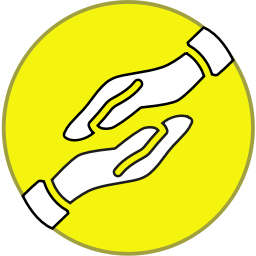Term two finished part 1: simultaneous interpreting
As promised, here is the second installment of my blog following the second term of teaching in a one year Masters program in interpreting and translation at Bath University in the UK. The structure and content of teaching in the second term has been very different to the first term, so if you are interested in comparing, please take a look at my first blog entry.
The second term put A LOT more emphasis on live interpreting practice, pressure has been a lot higher, and the requirements for specialized vocabulary has been noticeably greater than the first term. I will break down the different classes over a few blog entries, in the hope its more palatable for reading. I will assess my own performance vs my Chinese classmates, as well as reflect on Chinese-English interpreting from a native English speakers perspective whenever it might be useful. Firstly I’ll start with Simultaneous Interpreting.
Simultaneous Interpreting and using Glossaries
So, our SI (Simultaneous Interpreting) class has been every Monday at 11:15. The course works both directions C-E and E-C, and we have alternated direction from week to week. We mostly work inside professional interpreting booths for the first hour, doing live interpreting of videos that vary from 10 mins in length to half an hour using headphones and microphones that record live. The second hour is largely dedicated to feedback and guidance for improvement. We are told the broad topic of the class via email around Thursday the week before, for example, “next weeks SI will be on ‘fracking’” and that’s it. We are then expected to prepare a glossary of specialized terms, usually that can fit on one A4 page, which we can then bring to class and place next to our microphones as we interpret, for reference. The point of this is not to actually collect huge lists of words (although this inevitably happens), but rather, read widely and educate ourselves on different subjects in both English and Chinese, as well as learn how to ‘prep’ for real life interpreting jobs. Many students seemed to have no issue with this set up, as many already have rich active vocabularies and encyclopedic knowledge. (side note: Seriously, I have never met such widely read people in my life. And that really goes for every single one of my classmates; they can talk through macro and microeconomics with ease, go to a doctors ward and discuss the treatment regimen for obscure diseases, explain in depth how neural networking is changing media reporting; all in both Chinese AND English. Quite amazing and very motivating for study). One downside of this set up for me has been that I have spent almost all my free time building glossaries and learning vocabulary, whereas my classmates have had time to practice the actual skill of interpreting in out-of-class hours. That being said, if I had known this before starting the course I probably would have been scared away and never even started. It is an inevitability for many of us coming from a background of only starting learning Chinese at university, there is simply not enough time to consolidate the vast amounts of knowledge required for professional level interpreting.
Getting back on topic: everyone seemed to have their own method to putting together specialized glossaries, for SI classes some even came with entire prepared folders with concise glossaries on pretty much every entry to an encyclopedia (I later learnt that in some cases these glossaries had already been used for many years and were very familiar to their users).
I have spent the better part of every week this year picking out key terminology for Monday’s SI class (and Thursday’s Consecutive Interpreting class), that is, terms that would require thinking time over and above the constraints of simultaneous interpreting. The reaction time to a speaker usually needs to be kept within 2 seconds; if terminology comes up that is not in your active vocabulary, it will almost certainly stretch you to around 5-10 seconds before you get it out in the target language, by which time the entire thread of the speakers argument has been missed. Evidently, glossaries are incredibly important to successful simultaneous interpreting. In almost all cases I short-term memorised every item on each glossary; heres a look at my anki:
Vocabulary requirements
In the last 3 months alone I have accumulated 1610 specialised vocabulary terms in my anki. This in fact EXCLUDES my cards from Supermemo (another well-know srs system which I both love and hate at the same time) which has another 2733 cards added since early March (see attached images). I use Supermemo for reading, so many of these cards aren’t vocabulary items, but clozed passages from Wikipedia/academic articles. Nonetheless, the mental strain for getting up to the standard required for SI is frankly unhealthy: it is simply not doable in the time frame that the course allows. Many of my classmates have already taken courses in interpreting prior to this course, and so managed to keep up with the pace, but lets just say there were tears in class from some a number of times.
Left: Anki deck specifically for interpreting glossaries. Right: excel files for glossaries
Regarding the workload and how I coped. I estimate (stressing estimate, based on a pleco deck I have added to over the last five years to track my vocab progress) my passive vocabulary is now around 15-20,000, but active is to be honest probably only around 10-15,000 (again, hard to really know). Which is certainly not good enough to do professional interpreting with. For anyone considering doing a course like this, you should know that you are aiming for ‘near-native’ level size of active vocabulary, what I have been working with seemed like an impressive vocabulary size when I started the course, but now it seems laughable. Some of my classmates are far better read than me in English, 30k+ I reckon.
a deck I have added any word I think 'useful' to over the years. I review these words in anki.
an example of what my supermemo decks for reading Chinese/English articles looks like.
As you can see, the requirements for vocabulary appear very scary. That being said, to someone that has learnt Chinese or English seriously for 10+ years, this is quite reasonable and achievable. I first went to China in 2008, and didn’t properly start learning until 2013/14, so I still have many years to go! I’m sure some of the longer-standing members of these forums must be nodding with a wry smile right now - been there done that!
That’s it for now, next entry I’ll go through my thoughts on the CI class. Sorry if this is a bit of a ramble, very hard to try and structure all that has happened over the last few months.
-
 12
12
-
 2
2




5 Comments
Recommended Comments